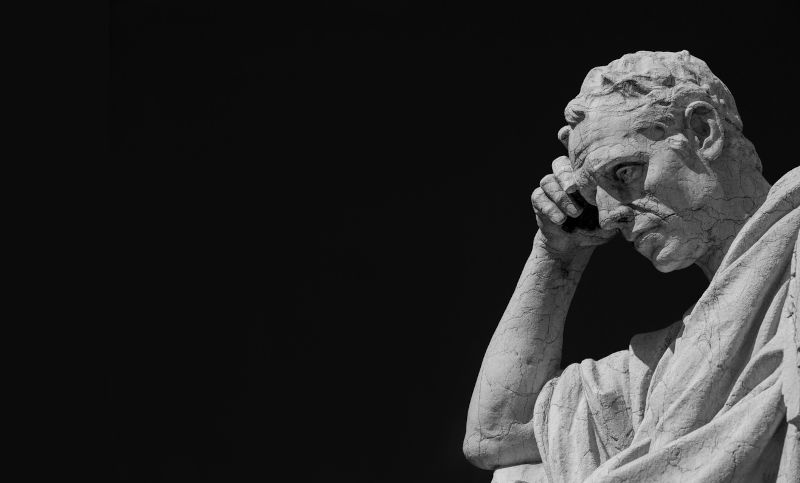Nail in the coffin: Australia has run out of luck
September 6, 2023
Once an early experiment in democracy, Australia has declined into a quagmire of unrepresentative governments at state and federal levels. Power games are played obsessively by most members of a narrowly-recruited and self-serving political class whose only interest seems to be staying in power. Politics is not a vocation for these leeches on the Australian body politic, it has become their business.
Its time to face the fact that the Australian political system has become an unholy mess. Our parliaments have become ring-fenced habitats for mostly egotistical male MPs and fewer women MPs most of whom seem determined to ape their male counterparts. These people exude a sense of entitlement beyond anything they have the right to expect. And all this is occurring as the country faces unprecedented challenges, at home and abroad. As many experts have been warning, citizens especially younger citizens are losing faith in our fragile democratic institutions.
This is painfully evident in the unholy mess that campaigning about the Voice to Parliament has become. It highlights everything that is terribly wrong about Australian politics. Let us be absolutely clear. The referendum is about nothing less than the civil rights of Indigenous Australians who have been denied those rights for more than 200 years of white settler colonialism. Seriously addressing Indigenous peoples civil rights is the most significant issue ever to come before the Australian people.
The contemptible politics driving the No campaign is a mishmash of opportunism, racism, narrow mindedness, and sheer nastiness. There is not a shred of concern for the political health of the country as a whole, not the slightest concern about how the No campaign is undermining a fair go for the very people who have been denied it for so long.
The outcome of the referendum will demonstrate whether or not we, as a nation, have a moral compass. If it fails, the consequence will be a bitterly divided country, destroying any chance for a consensus on how the nation can move forward. Well end up as a country divided, angry, and full of hubris and self-importance a country which our talented, intelligent and creative young people will not want to be part of.
Failure will also mean that the world will judge us harshly. Some crucial trading partners could well impose sanctions on us, just like the sanctions that crippled the economy of white South Africa during the apartheid era. This would be disastrous for the countrys wheat, barley, wine, seafood, and iron ore exporters for example. And any pretence that we are a nation that respects and upholds human rights will be scoffed at, especially by those countries weve had the temerity to criticise for their poor human rights records.
Both the Labor and the Liberal parties fail to see that Australia has run out of luck. Politics simply means power to them, not the security and wellbeing of all Australians. Theres not a statesman or woman among them. Their default position is always the politics of lazy pragmatism; their MPs are in the game solely for themselves. There are no leaders who can articulate an inspiring vision for a more compassionate, equitable and just Australia. The infamy of AUKUS is the last nail in the coffin of a truly sovereign and independent Australia.
The dramatic decline in support for the mainstream parties especially among younger voters and young prospective voters points to the need for more innovative political organisations that will properly represent their values. That decline is likely to end in the deaths of the mainstream parties.
The values of younger voters focus their attention on policies addressing climate change, equity for all genders, effective and properly resourced anti-corruption agencies, a well-regulated mixed economy, ending the countrys media monopoly, and a positively redistributive social security system (including, access to good public housing and affordable private housing, effective public medical service and hospitals, a genuinely progressive taxation scheme). They will advocate and vote for governments that nurture community well-being, not the enrichment of wealthy shareholders, media mobsters, and managerial fat cats.
It is important to understand that the concerns of the younger generation of voters reflect their values, not their interests (though the two are not necessarily in conflict). They have the good fortune to have avoided being socialised into the political culture of their parents and grandparents. That political culture was shaped_inter alia_ by the two World Wars, the Great Depression, the Cold War, and the Korean and Vietnam Wars, all of which have contributed to older Australians anxieties about security, but which have led to the politics of complacency that bedevil us today.
There is no point any longer in looking to the mainstream political parties for the policy reforms in which younger voters are interested, and which Australia as a whole so badly needs. Where can we expect a new generation of political leaders and imaginative reformers to come from?
The 2022 federal election saw a major shift in the way many voters placed their first preferences. In core blue ribbon Liberal seats for example Kooyong in Victoria and Warringah in NSW we witnessed the rise of the Teal independents. While the media and other commentators have been patronisingly dismissive of MPs like Monique Ryan and Zali Steggall, their contributions to the 47th parliament mean that it would be more than foolish stupid in fact to underestimate them. They represent the beginnings of a new politics for Australia.
In the Senate David Pocock has been an outstanding example of what an MP can and should be. Some Greens like Barbara Pocock have also contributed to the inevitable transformation of Australias political culture, as have a few mainstream MPs like Deborah ONeil (Labor) and Bridget Archer (Liberal).
Will the rise of independents in hitherto safe parliamentary seats lead to the formation of a new, democratic political party with a progressive reform agenda focused on making Australia a world leader in clean energy resourcing, social justice, human rights, and cosmopolitanism? I, for one, believe so.

